Here at the Brown Bookshelf, we’ve spoken often and long on the issues and ideas expressed in the Open Declaration. We do this work to lift up our young readers and show them how they can survive, thrive, and soar in this world. For many of us, the way forward might be clear, for others, not so much. We may sign on to petitions and open declarations, forward emails, RT, and “like”, and these can all be good and powerful things. But we believe that it’s important to reflect on how we will hold ourselves accountable, how we will act, and reflect; how we will “live out commitment to using our talents and varied forms of artistic expression to help eliminate the fear that takes root in the human heart amid lack of familiarity and understanding of others; the type of fear that feeds stereotypes, bitterness, racism and hatred; the type of fear that so often leads to tragic violence and senseless death.” We’ll present a series of those posts here; signatories asking, wondering, and doing an essential question: Where do we go from here?
I’m especially honoured to share thoughts from award-winning author, artist, educator, and activist Pat Cummings. As a literacy educator and freshman college student, I carried JUST US WOMEN, illustrated by Ms. Cummings, on all of my summer home visits to families — it was a favourite in every one of the Harlem and Washington Heights homes I visited, as inspired young children and parents shared their own stories and photos of family road trips and vacations. Two of my own daughter’s ABSOLUTE first favourite books were Cummings’ MY AUNT CAME BACK and CLEAN YOUR ROOM, HARVEY MOON — even before she could read, she was enthralled by the wordplay and the joyful Brown faces on the pages.
I’m more than thrilled to welcome Pat Cummings back to The Brown Bookshelf.
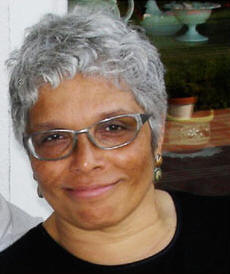 Why did you sign the declaration?
Why did you sign the declaration?
A book is personal. Through words and pictures I have a chance to talk directly to more children than I’ll ever meet. Children who may take what’s in the pages of the book to heart. I’ve heard that personalities are formed by the time a child reaches six years of age. So, knowing that this is a window, an opportunity to express positive, open and humane ways of interacting with others on the planet, I feel children’s books can be more effective, more subversive even, than trying to get through to adults who are inexplicably locked in their prejudices, fears and arrogance. I signed the declaration because every point and sentiment in it aligns with my own beliefs.
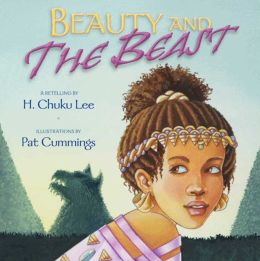
How do you describe the intersection between art and activism? Who/what has influenced you in that area?
The arts, any art really, is an expression of your core beliefs. It’s like your handwriting or accent: your belief system is distinctly your own. And art provides an avenue for us to express what we think, love, believe. I’m not sure what would happen if we existed in an utopian society. But, faced with the disturbing attitudes and actions around us today and, knowing that vulnerable, open children are taking their cues from what they’re seeing, I think artists have to be activists. Who has influenced me? My mother and father. They are the ones who taught me to use critical thinking, to not only observe what is but to structure a pathway to what can be.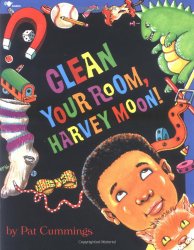
What next steps do you plan to take to carry out your pledge?
My goal is to ensure that readers find positive imagery and healthy relationships in the pages of my books.
In this business, we all try to suggest creative, positive resolutions to any situation. I’m committed to getting at the humaness of my characters…a colorless, genderless, ageless humanity that prevails regardless of nationalities, creeds or isms. Most of my characters are Black. And while that’s partially to address our underrepresentation in children’s literature, it’s also because I’m sick and disheartened about the widespread hostility and misunderstanding that has such negative effects. Walter Dean Myers once told me that he wanted to see his books in the hands of white kids who didn’t actually know anyone Black. And that’s been a big motivator for me: trying to remove the ignorance some readers have. Not ignorance in the sense of stupidity, but ignorance, literally: an ability to ignore anyone who looks, believes, or acts ‘different’. So, writing. Talking to kids. Working with college students and workshop attendees to encourage a more inclusive attitude. My plan is very much based on tossing a stone in the pond to create widening ripples.
How would you like to see the children’s publishing industry do its best to support our children?
I’ve seen improvements so I’m actually encouraged.
The Brown Bookshelf, We Need Diverse Books and even Black Lives Matter have had a significant impact on publishers.
Hiring editors, art directors, and marketing people of color will make a huge difference and I’ve seen initiatives to do just that. But one of the HUGEST things publishers could do is to widen the focus in their marketing. More authors, illustrators and publishing employees of color is a great start. But until books featuring diverse characters are actively marketed to mainstream audiences, diverse books will stay a niche section of the bookstore and a niche in publishers’ marketing plans. There still doesn’t seem to be a push to market books to EVERYONE, regardless of who is on the cover.

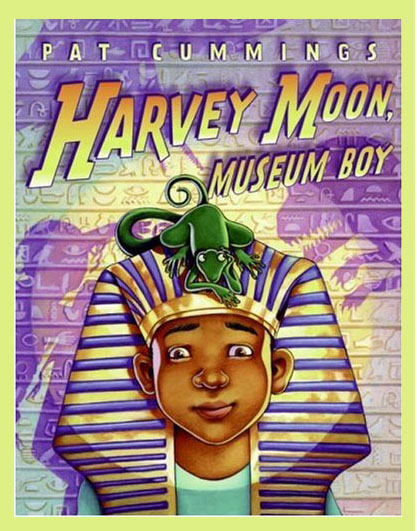
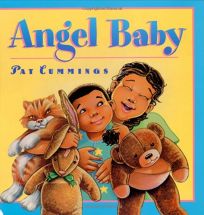
A lot of what I see is a lack of marketing and houses standing behind the projects that people of color put out… as if they’re unsure they should be supported. It would definitely make a Statement about that house’s commitment to diversity – for real – if marketing dollars happened.
Reblogged this on Tracey Baptiste.
First, an unrelated question: When was the first African American Children’s Book published and who wrote it?
As always a fascinating interview. One thing that interests me are the improvements Pat mentioned. I wished they were detailed, because I have not seen any. Perhaps they have not yet come to fruition.
I have sold hundreds of different children’s books titles over the years: http://bit.ly/100sofbooks including books by Pat: http://bit.ly/PatCummings despite that mainstream children’s book publishers have never been aggressive in marketing children’s books to my site’s audience. Publishers like Just Us Book and Lee and Low have. This is where are grow will come from. We as readers and advocates for children’s literature have to support these indie entities as well.
Doing the same thing and expecting different results…